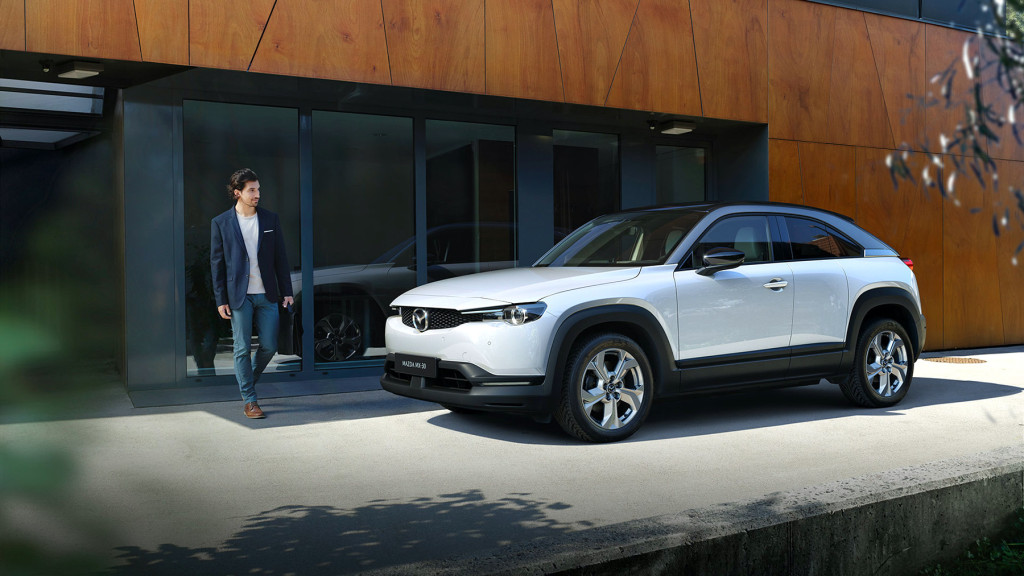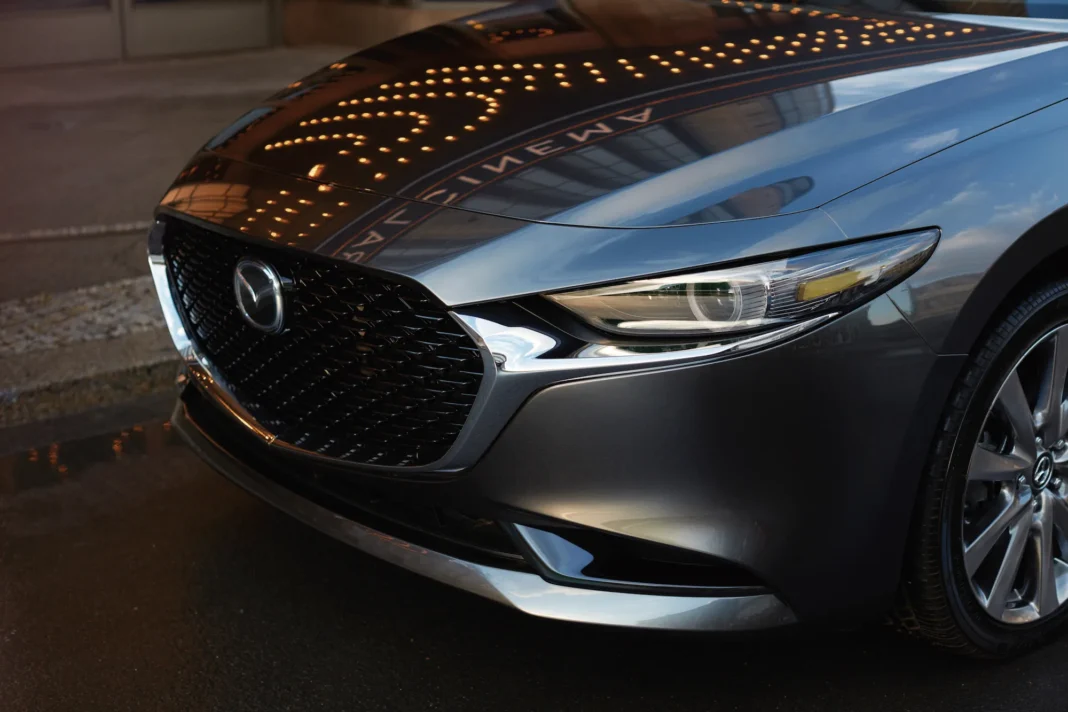Mazda on Monday announced a new Japanese battery plant that will assemble cylindrical cells into modules and battery packs for use in a planned electric vehicle based on a dedicated platform.
Located in Iwakuni City, in Japan’s Yamaguchi Prefecture, the plant targets 10 GWh of annual production, Mazda said. Cells will be supplied by Panasonic under an agreement between the two companies announced in June 2023 and approved by Japanese regulators in September 2024.

2023 Mazda MX-30 EV
Mazda previously launched the low-range MX-30 in both all-electric and range-extended form, and is partnering with China’s Changan Automobile on the EZ-6 electric sedan. But Mazda said modules and packs assembled at this new plant are destined for “Mazda’s first battery EV that uses a dedicated EV platform,” which will also be assembled in Japan. This likely refers to the electric SUV scheduled to launch in 2027 that Mazda confirmed in November 2024.
The original announcement of the cell supply deal with Panasonic also mentioned North American production of cells, likely from a new factory in De Soto, Kansas. Mazda hasn’t offered an all-electric model since the withdrawal of the MX-30 from this market, but has said that it will adopt the Tesla NACS charging connector for any future EVs it might sell here.

Mazda electrification plans for current decade
Mazda has indicated that longer-range EVs aren’t the future, but the use of cylindrical cells could yield efficiency gains. It’s the chosen cell of Lucid and Tesla—the two range-leading EV brands—with Panasonic supplying both.
Other automakers are also looking at cylindrical cells. BMW is expecting major efficiency improvements from them in its upcoming Neue Klasse EVs, and General Motors has hinted at them as part of an overall strategy of cell flexibility.

